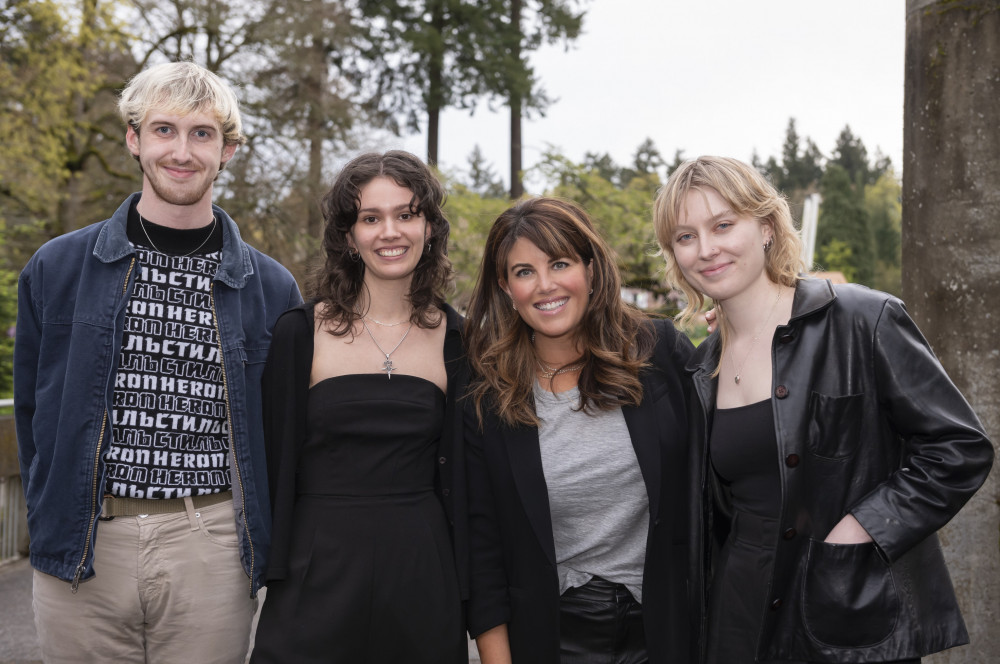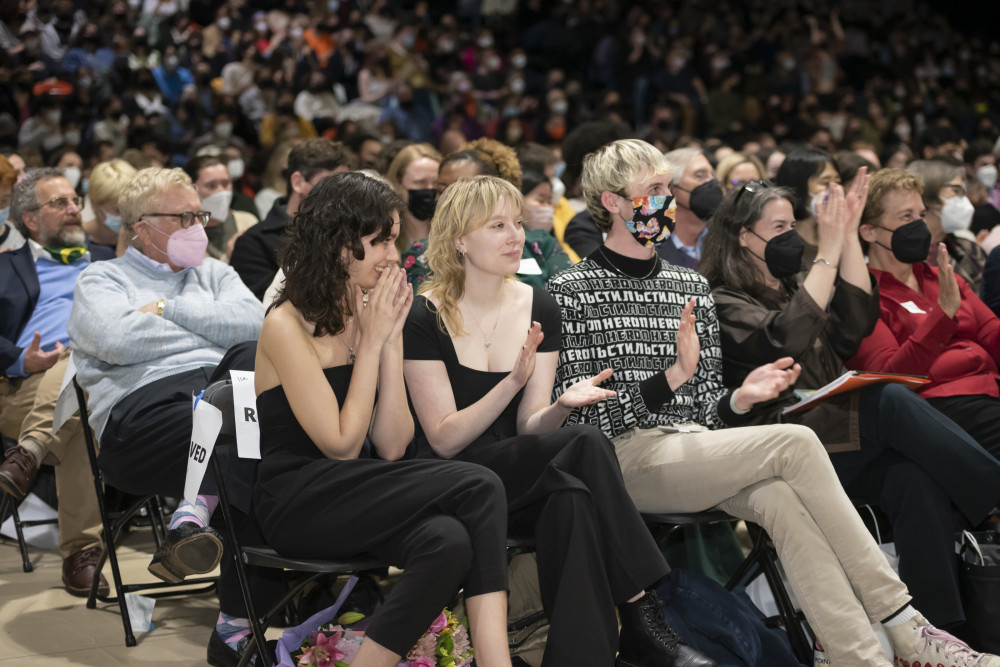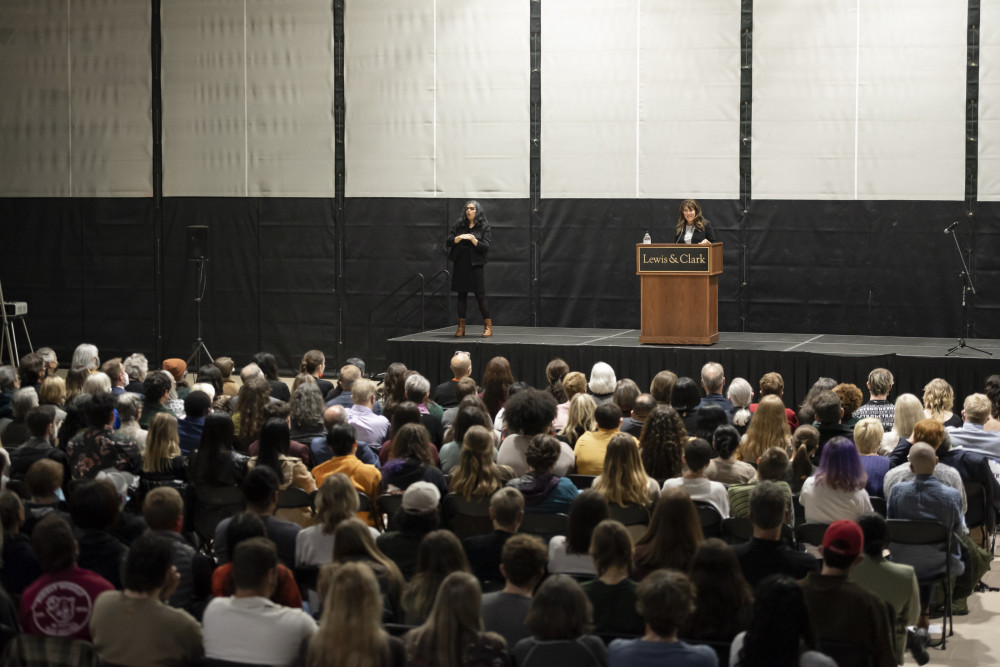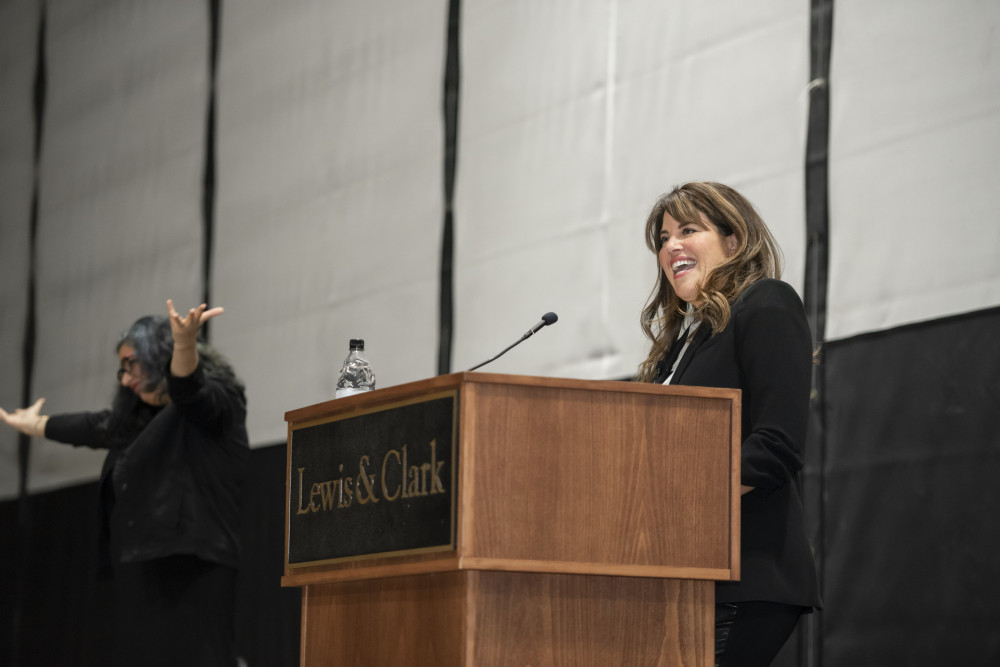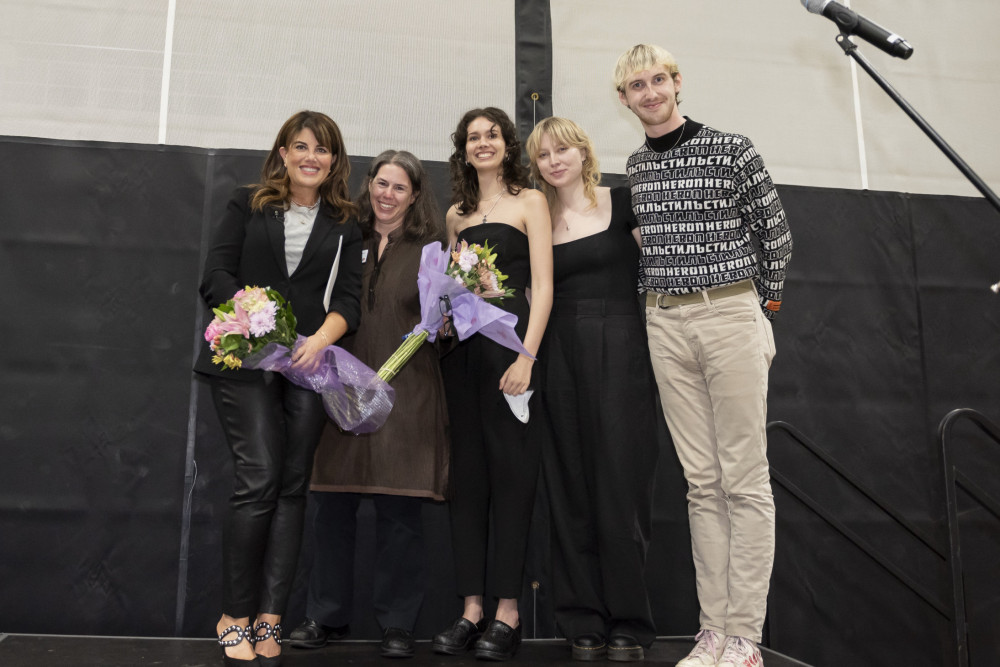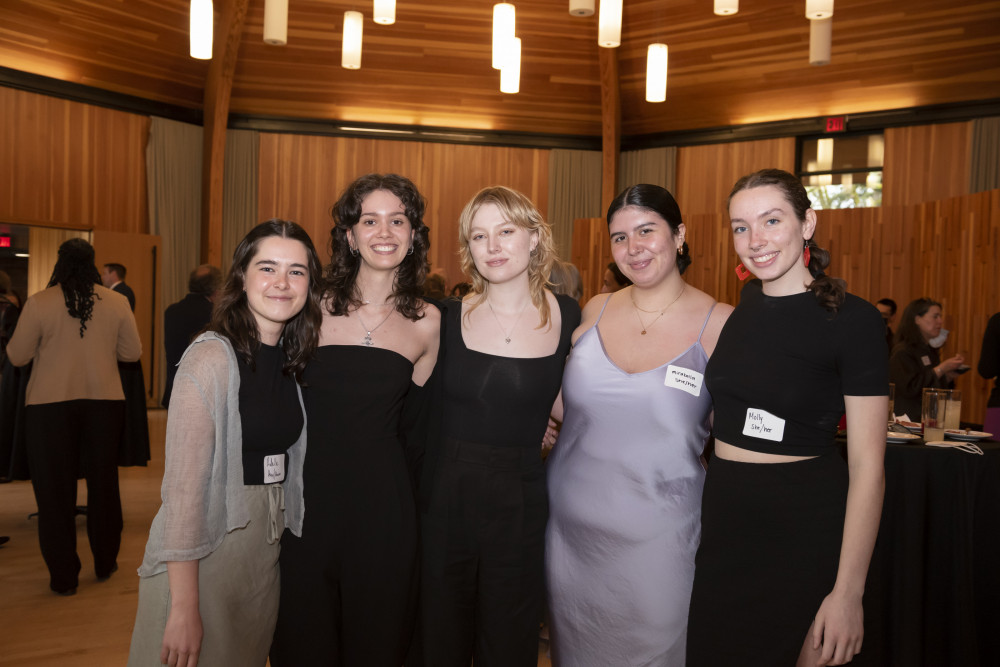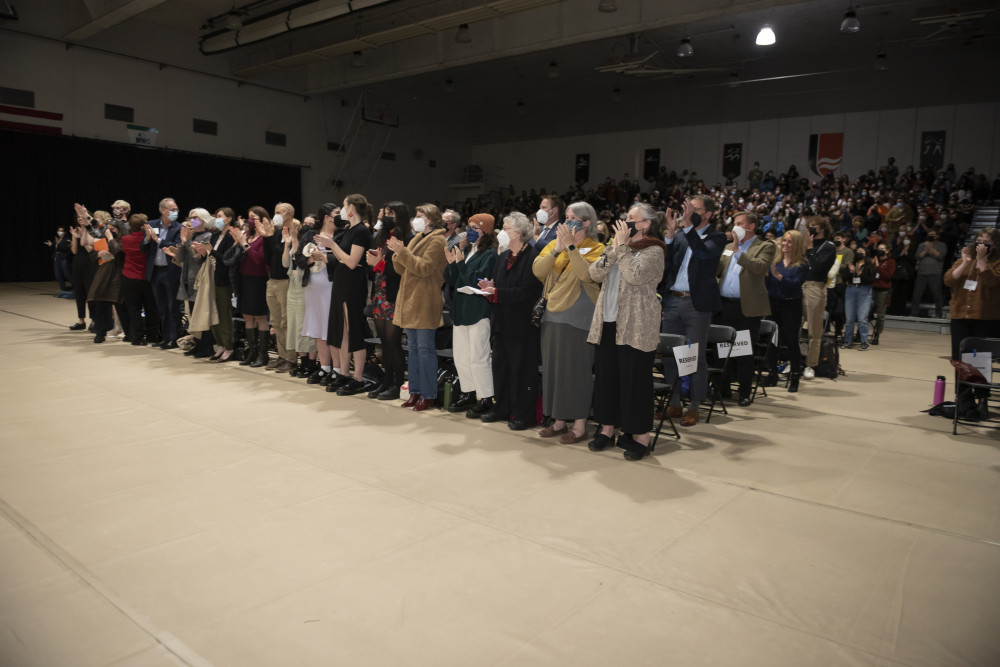main content Monica Lewinsky BS ’95 Returns to Campus
In her personal, vulnerable narrative, Lewinsky celebrated compassion; destigmatized asking for help; and revealed her hope for a legacy of emerging from the unimaginable to add value to the world.
Appearing at the request of the Feminist Student Union, Monica Lewinsky BS ’95 returned to campus on April 20 to present a public talk focused on “Social Activism, the Price of Shame, and Resilience.” Her talk was cosponsored by the Associated Student Body, the Office of the President, and the Office of the Dean of the College of Arts and Sciences. It was preceded by an informal conversation with approximately 25 student leaders and a reception in Gregg Pavilion.
Lewinsky spoke to a full house of students, faculty, staff, and alumni in Pamplin gymnasium—and gently poked fun at herself for having never been in the gym during her time as a student. She reflected warmly on her time at Lewis & Clark and in Portland, acknowledging her mentor, Professor of Psychology Tom Schoeneman, who was in the audience and who taught her favorite undergraduate class: The Social Construction of Madness.
Since earning her BS in psychology in 1995, Lewinsky has served in government, earned a master’s degree from the London School of Economics, collaborated on media projects, and worked as an entrepreneur. Most recently—following her 2014 talk at the Forbes 30 Under 30 summit, 2015 TED talk, and 2018 Vanity Fair piece—Lewinsky has emerged as a powerful anti-cyberbullying advocate and voice for safer social media.
Her talk followed the chronological and psychological arc of her post-Lewis & Clark story, starting with the moment she “fell in love with her boss” and moving through the release of the Starr report, her unwilling emergence as a public figure, and the emotional toll of being what she calls “the first victim of cyberbullying.” In explaining just how heavy the burden was, she flatly stated, “I wanted to die.”
While Lewinsky ultimately transformed her life, the road to healing was not easy or quick. She vividly described how she was a test case for the way impersonal digital spaces, such as the internet and social media, have created havens for public shaming and humiliation. Using examples from her own life, supplemented by current research, Lewinsky illustrated how technology can “remove our fundamental humanity” unless we actively push against it.
Her antidotes to these threats are compassion, empathy, and a “f–ton of therapy.” She emphasized that “there is no shame in getting help.” Lewinsky’s work and presence are a testament to her words to live by and the invitation she extended to the audience: “Radiate compassion.”
Monica Lewinsky Event 2022







More Stories

Textual Treasures
Paging Through the Past
In her Medieval Manuscripts course, Professor of English Karen Gross brings history to life with the help of Watzek Library’s rich archival collections. Students get hands-on experience with centuries-old texts as they explore the art of archival research.

Dance Moves
NYC-Based Dance Company In Step With L&C Students
The Tiffany Mills Dance Company, named for and headed by L&C’s director of dance, took part in a spring residency on campus, leading a series of community dance workshops and performing The Viola Trilogy alongside students.

Groundbreaking Science
A Quantum Leap for Physics Students
Ben Olsen, assistant professor of physics, is establishing Lewis & Clark’s first Quantum Information Science and Engineering lab to probe how unusual types of matter behave at the subatomic level. But first he and his students have to build “The Apparatus.”

Immersive Learning
Voices of Vietnamese Portland
Nhân Hàn BA ’27 and Thoan Nguyễn BA ’27, with project manager Zoë Maughan BA ’19, curated a 15-panel, bilingual traveling exhibit highlighting stories from Vietnamese Portland: Memory, History, Community, an archive documenting experiences of Vietnamese Portlanders.


